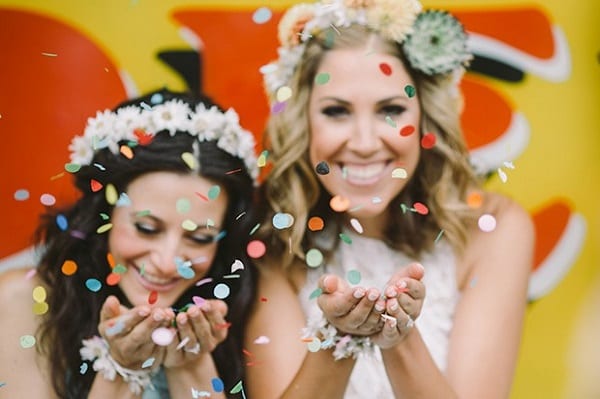Last weekend in The Botanic Gardens, we found ourselves unsolicited spectators of a wedding ceremony. We were happy for them. We recognised a part of ourselves in their story but we also saw the difference; he loves a woman and she loves a man. Who you love doesn’t negate the love – rendering a love as lesser, does. The irony is, love’s the one thing we all have in common; we all know what it feels to love and the value of it doesn’t exist in a vacuum.
With the nod to going postal, hate has now become a spectator sport. This very public game of ‘spot the difference’ is causing more harm than acceptance ever will. This is personal. This is our life and our love – not a popularity contest that arrives in your letterbox. Up until this point, we just believed society would shift.
In waiting for equality, we used to have patience, we used to have good will and we used to have hope that by 2017, we’d be equal. Instead, we’re feeling a polarising difference and vulnerability that follows us everywhere we go. As we walk through the streets, we wonder how many of our neighbours, colleagues and passersby have the power to shape our future.
As the days roll on, this debate veers more off-course with the point of contention debased to a conflating hypothetical of hate. Gone are the concessions of civilised discourse. This is homophobia; blatant, deep, long-reaching, pervasive and toxic. If we strip away the excess, we’re actually fighting for the same thing – the right to protect the sanctity of our experience of love. The actual question at hand is simple – ‘Hey Australia, do you believe in equality: Yes or No?’
When you package all the propaganda into a tidy little nugget, the commonality is fear. Fear that with ‘counterfeit’ women using the same toilets, we’ll see a rise in rapists. Fear that children of gay parents will suffer demeaned childhoods. Fear that ‘rainbow politics’ will pervade into schools. Fear that saying ‘yes’ to same sex marriage will be the fray that leads to the unraveling of decency and decorum. Fear that school will tell your son it’s OK to wear a dress.
Our fear is that this continuum of inequality is actually endless, that a ‘yes’ or a ‘no’ can’t erase how we get there. Long after the outcome of this top-down political-grenade has settled and taken seed, the division it’s creating will linger a lot longer than the weight of the decision.
We’re not asking you to compromise your love, we’re inviting you to recognise that our love is the same. We’re not asking you to renounce or weaken your religious beliefs, we’re encouraging you to see that in the absence of hate, our love can coexist. We’re not trying to undermine the tradition of your marriage, we’re asking that our family is afforded the same Constitutional equality as yours. Until then, our anniversaries are annual reminders that we’re less than.
In order to respond to this wasteful war of words, we’re essentially pushed into either shouting and bolding our love in rainbow colours or meeting the hate with hate. There’s only so far a rainbow can rise above the vitriolic nonsense that oozes onto our screens, airwaves, letterboxes and deep into our public dialogue. The single most destructive part of this farce is that these lowest-common-denominator arguments assume we’re ignorant enough to believe them.
Looking back, will we be proud that we spent $122 million on legitimising the felt reality of a minority love that’s no less real when we could’ve been collectively innovating our future? As a fair-go Federation who prides itself on equality, loyalty and mateship, we should already count ourselves among the 25 countries where same-sex marriage is legalised. Instead, we’re about to spend more than three times the GDP of Tuvalu bracing for the disaster of inclusion.
Much like Y2K, in hindsight, we’ll laugh at our underground bunkers of marriage demise, realise that equality was inevitable and that the dire predictions of society’s decay were nothing but breathless hype.
So ‘With courage let us all combine, To Advance Australia Fair.’

